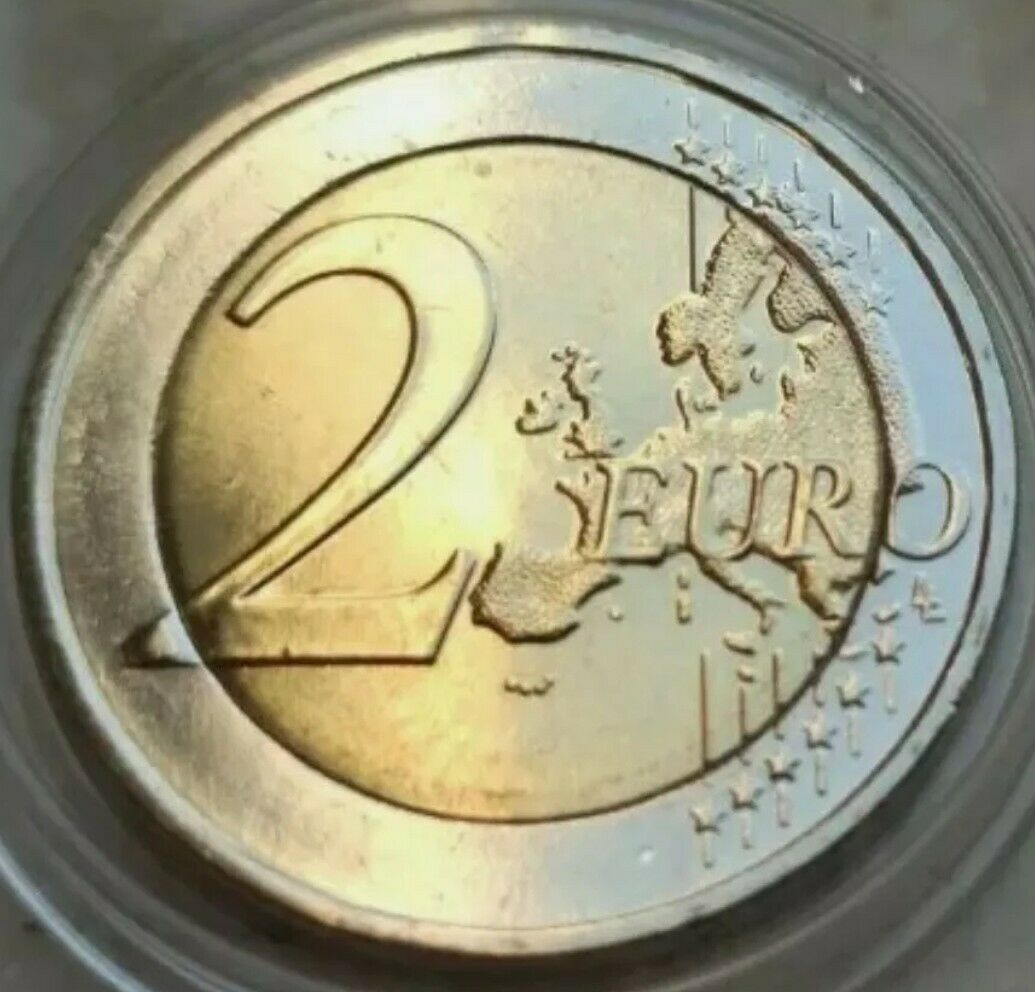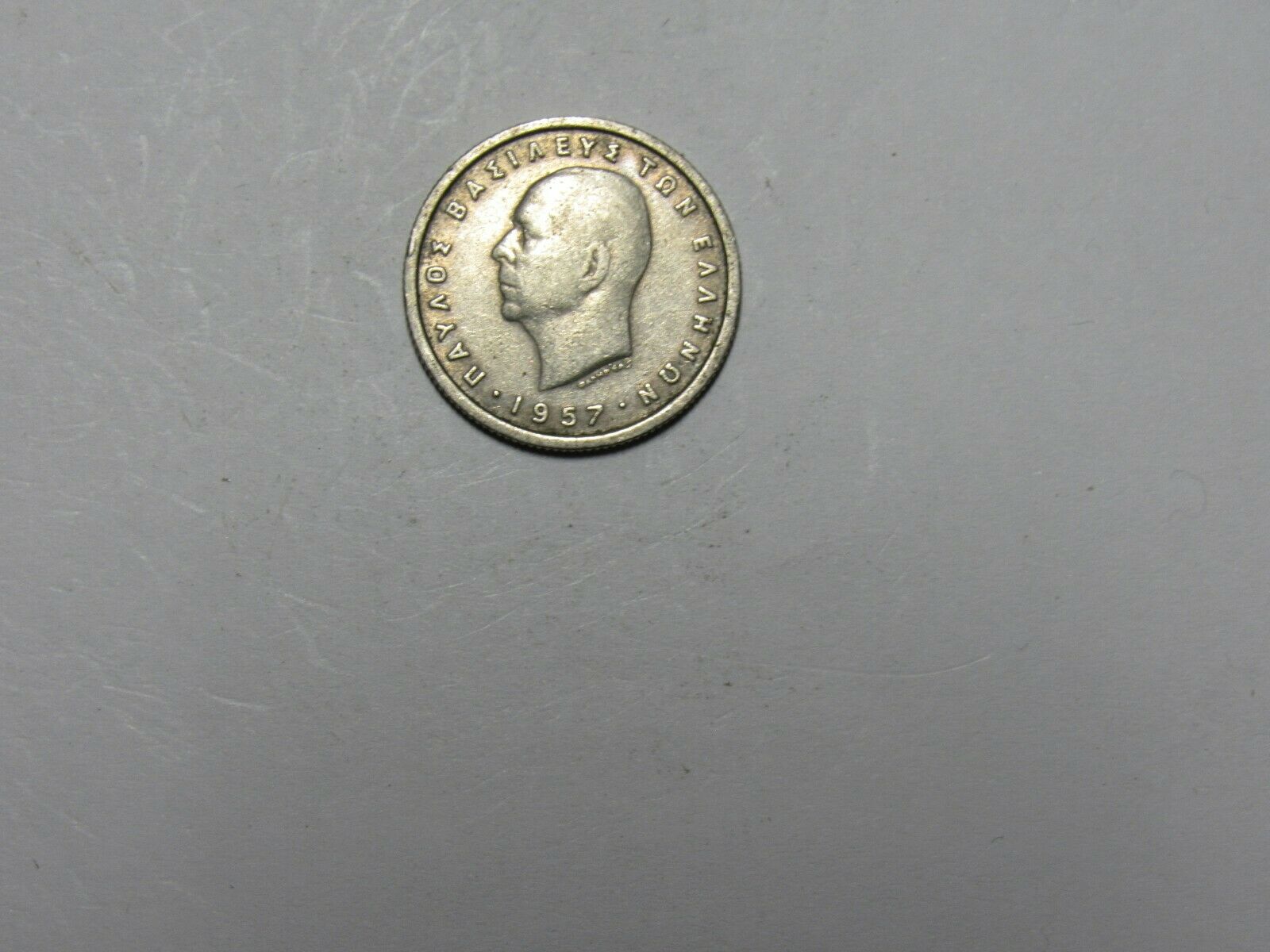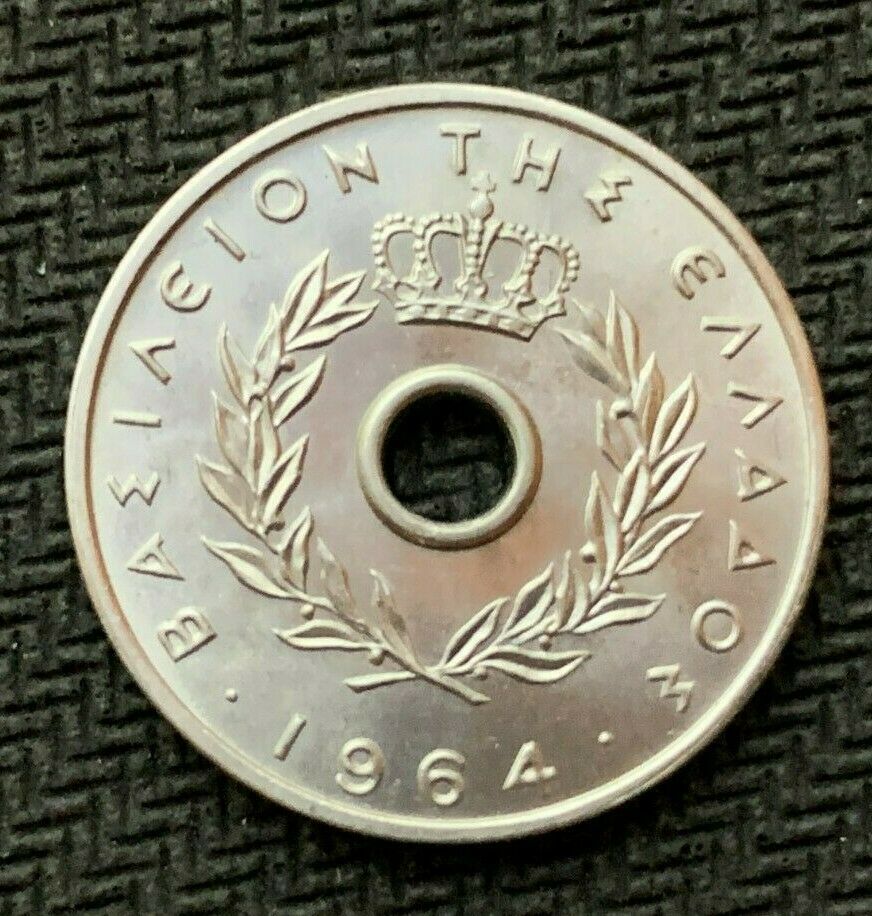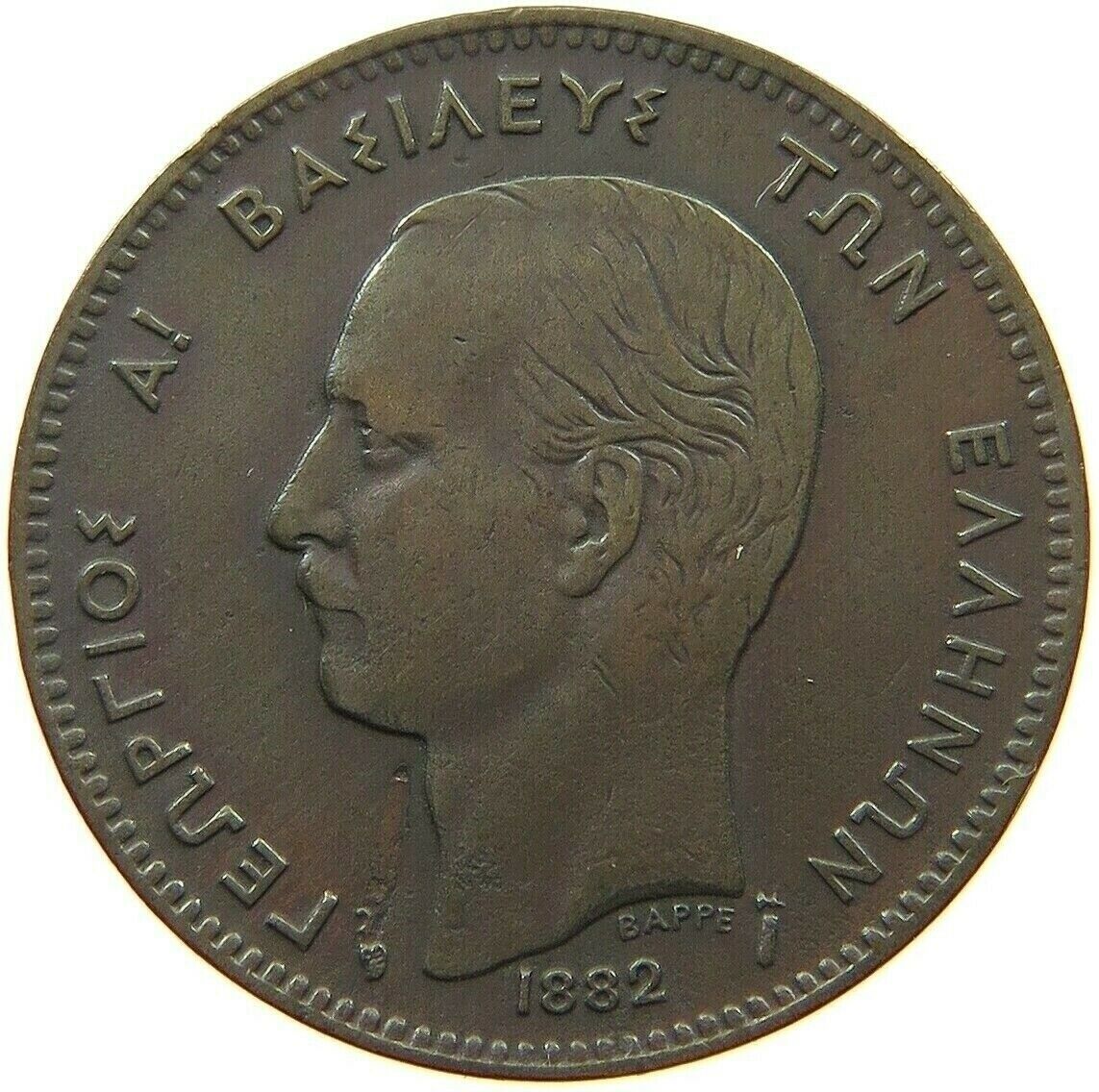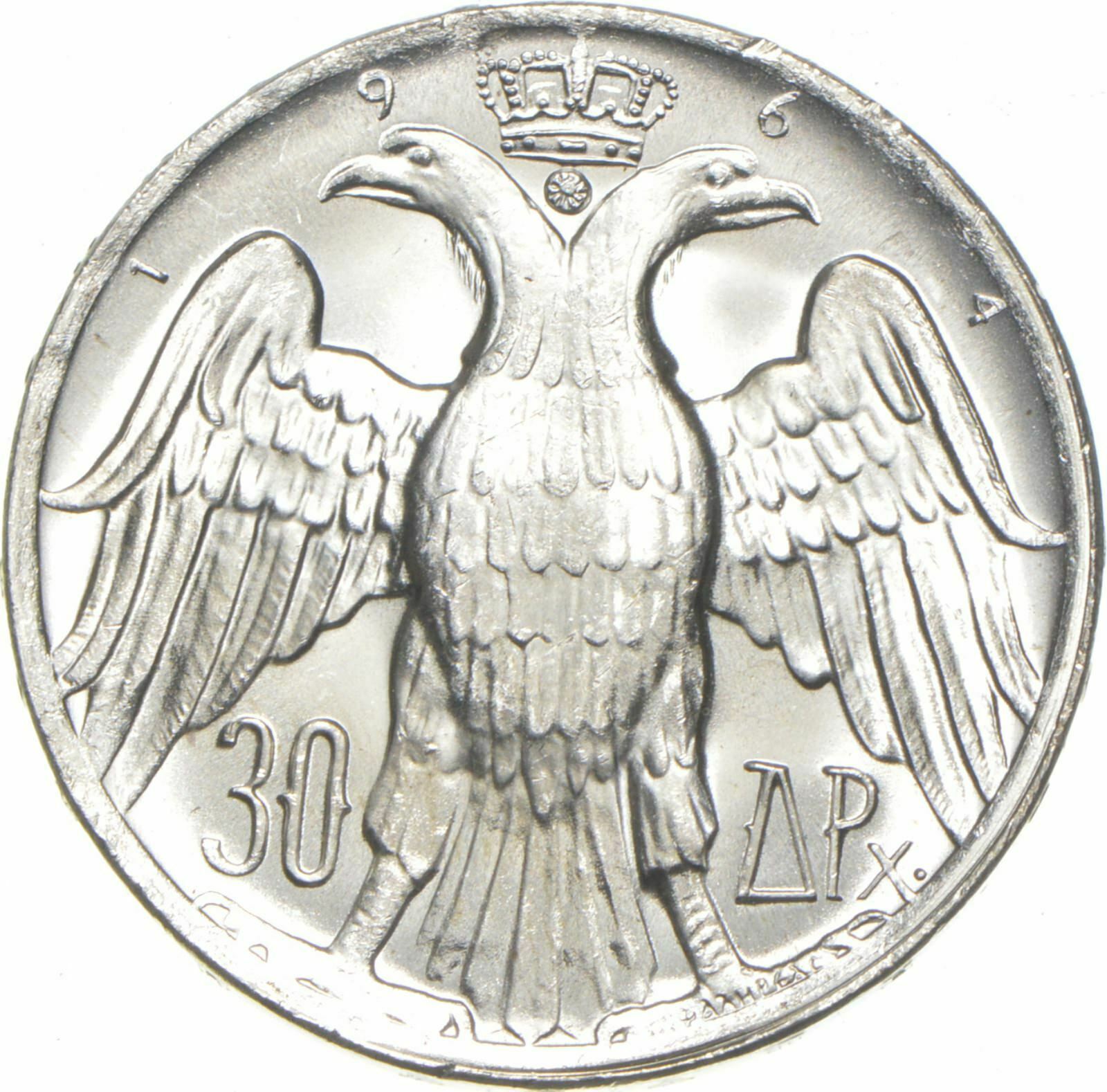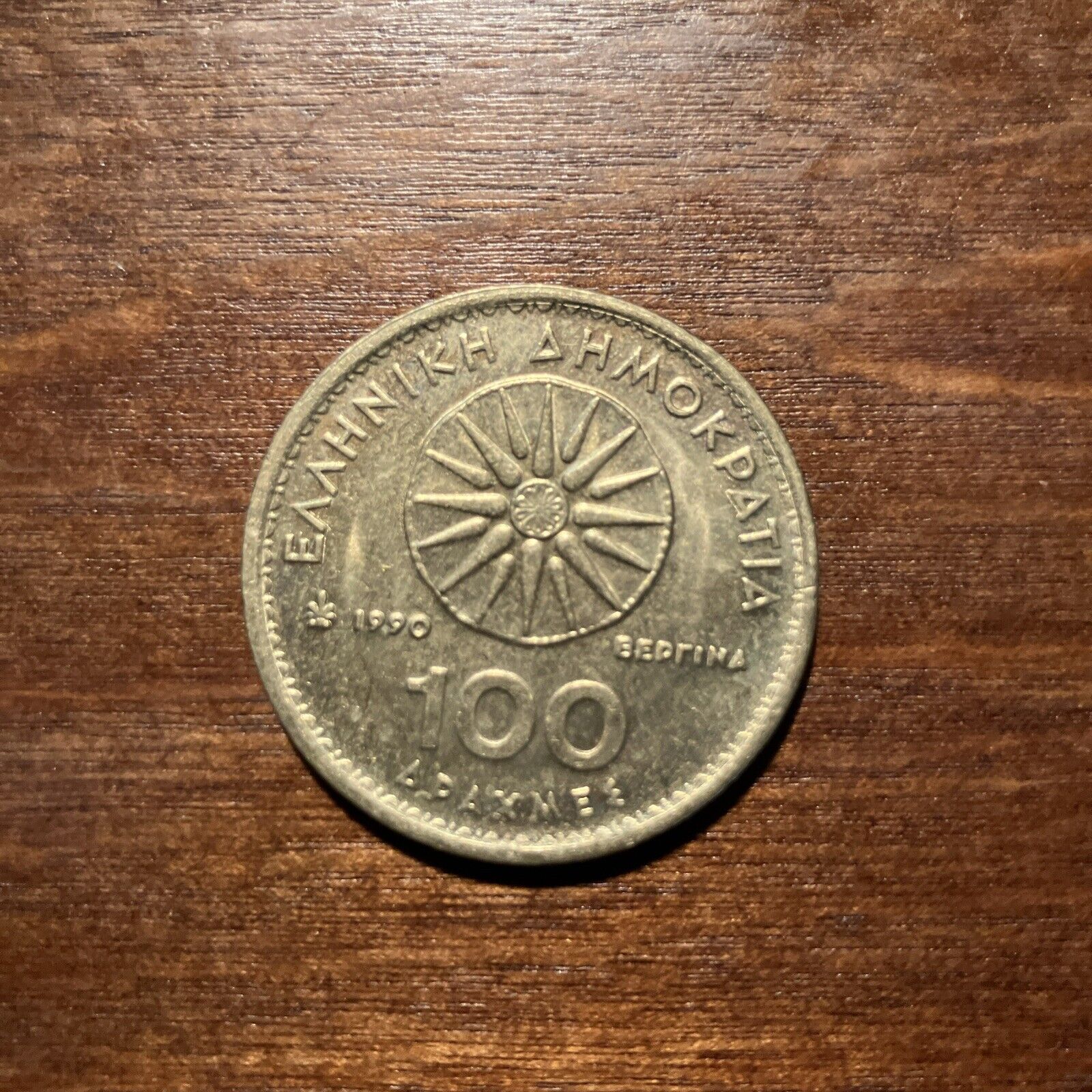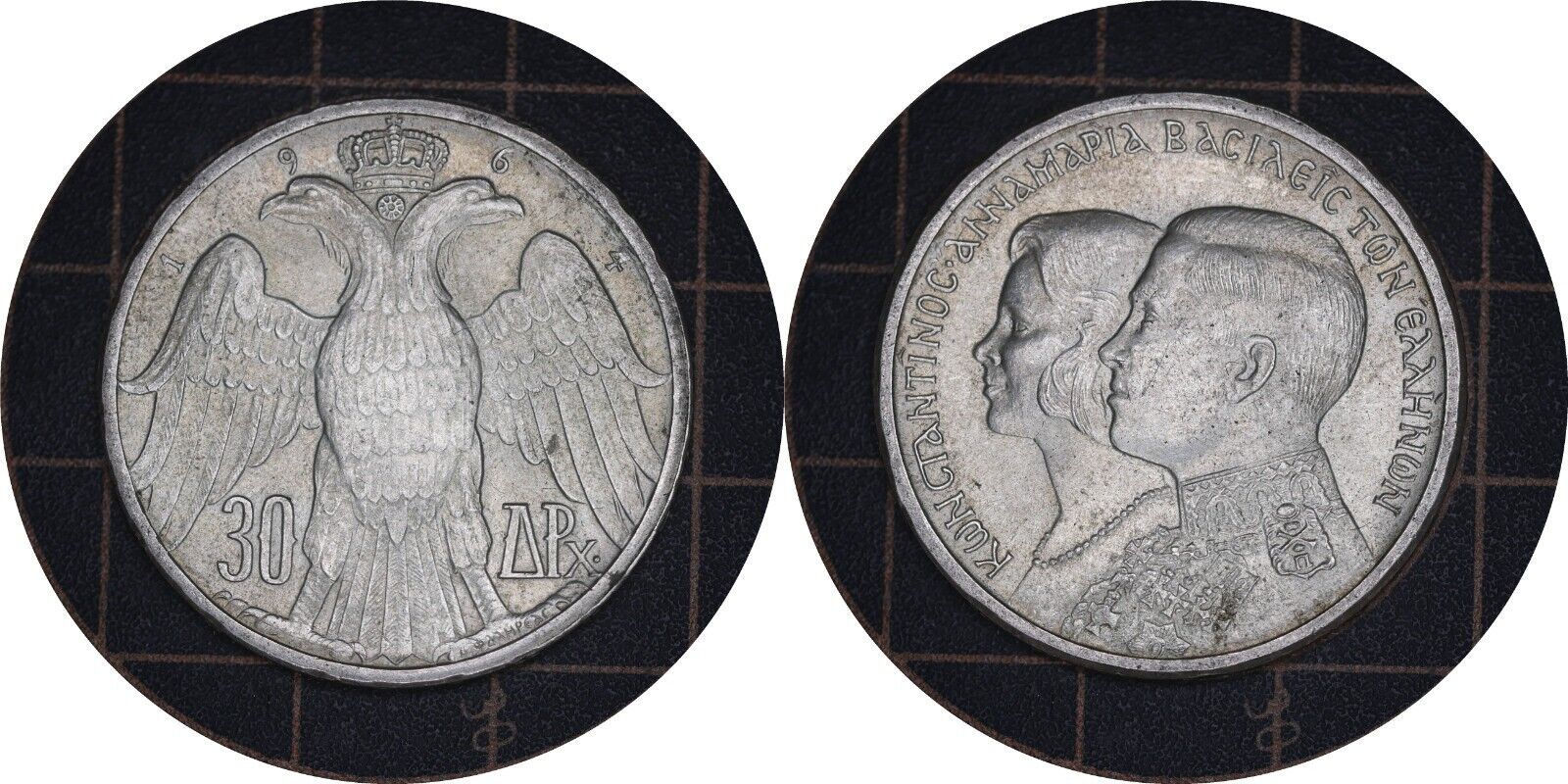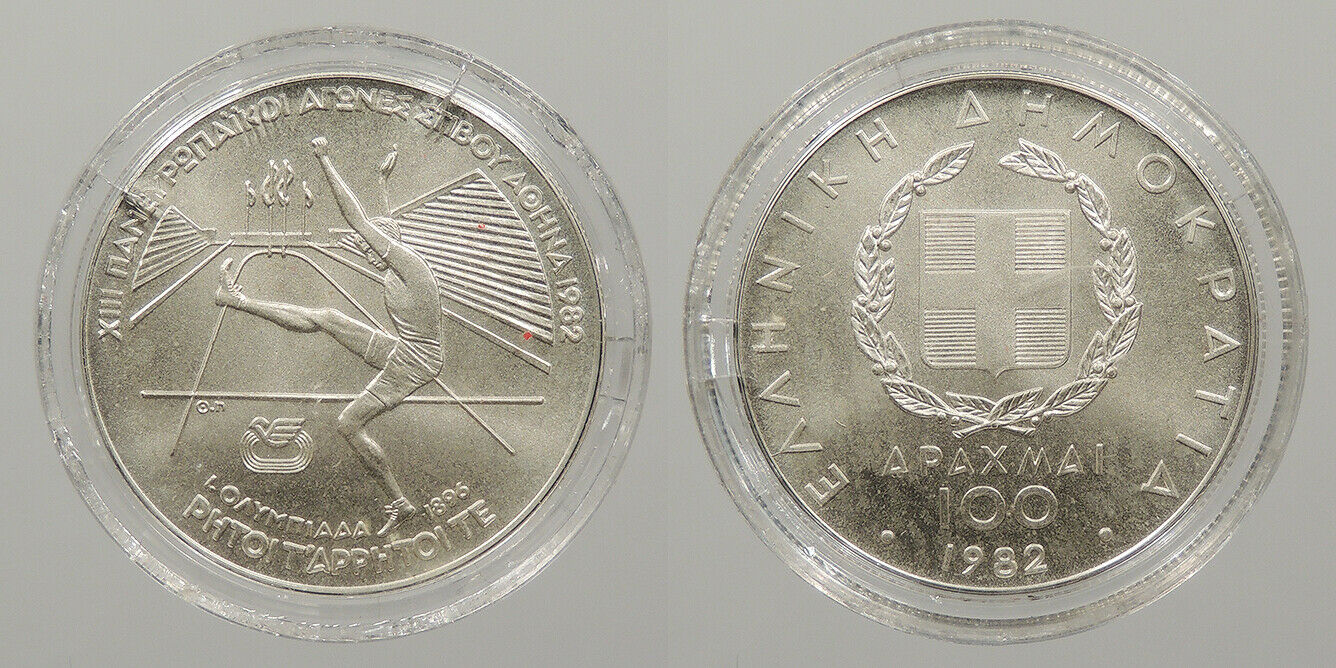-40%
MIAOULIS ANDREAS 2 Euro 🅰️ GREECE 1821 2021 🅰️ Grece Grecia Griechenland
$ 31.66
- Description
- Size Guide
Description
1821-2021.200 years from the Greek revolution.
ΓΙΑ ΕΛΛΑΔΑ ΓΙΝΕΤΑΙ ΚΑΙ ΑΝΤΙΚΑΒΟΛΗ Η ΚΑΤΑΘΕΣΗ/ΜΕΤΑΦΟΡΑ ΣΕ ΤΡΑΠΕΖΑ.
Επικοινωνήστε για λεπτομέρειες.
The item on the pictures is the one that you will receive. Look carrefully and judge for your self for the quallity and the grade.
S&h is .90 for all the world.
Registered mail with international tracking number.
BID WITH CONFIDENCE. . SELLER with 100% POSITIVE FEEDBACK.
Andreas Vokos
Drawing by
Karl Krazeisen
Native name
Ανδρέας Βώκος
Nickname(s)
Miaoulis
Born
1765
[1]
Hydra
,
Ottoman Empire
Died
11 June 1835 (aged 70)
Athens
,
Greece
Allegiance
Greece
Rank
Admiral
Battles/wars
Battle of Nauplia
Battle of Gerontas
Andreas Miaoulis. Drawing by
Giovanni Boggi
Andreas Vokos
, nicknamed
Miaoulis
(
Greek
:
Ανδρέας "Μιαούλης" Βώκος
; 1765 – 24 June 1835), was a Greek
admiral
and
politician
who commanded Greek naval forces during the
Greek War of Independence
(1821–1829).
Biography
Miaoulis was born on the island of
Hydra
in a family of Euboean origin, namely from the town of Fylla in
Euboea
.
[2]
He was known among his fellow islanders as a trader in corn who had gained wealth and made a popular use of his money. He had been a merchant captain, and was chosen to lead the naval forces of the islands when they rose against the
government of the Sultan
. Miaoulis contributed in every way possible to the cause of the resistance against the Turks. He expended the money he had made from his wheat-shipping business during the
Napoleonic Wars
.
[3]
Between May 1825 and January 1826,
[1]
Miaoulis led the Greeks to victory over the Turks in skirmishes off Modon, Cape Matapan, Suda, and Cape Papas.
[1]
Role in the Greek War of Independence
Flag used by Miaoulis during the early stages of the
Greek War of Independence
Statue in
Hydra
commemorating Andreas Miaoulis.
The islanders had enjoyed some measure of exemption from the worst excesses of the Turkish officials, but suffered severely from the conscription raised to man the Turkish ships; and though they seemed to be peculiarly open to attack by the Sultan's forces from the sea, they took an early and active part in the rising. As early as 1822 Miaoulis was appointed
navarch
, (
Greek
:
Ναύαρχος
) or
admiral
, of the swarm of small vessels which formed the insurgent fleet. He commanded the expedition sent to take revenge for the massacre of
Chios
in the same year. He was victorious at the
Battle of Nauplia
in September.
[1]
In 1824, after the conquest of
Psara
by the Turks, he commanded the Greek forces which prevented the further progress of the Sultan's fleet, though at the cost of the loss of many fire ships and men. But in the same year he was unable to prevent the
Egyptian
forces from occupying
Navarino
, though he harassed them with some success. In 1825 he succeeded in carrying stores and reinforcements into
Missolonghi
, when it was
besieged for the third time
, though he could not avert its fall.
[1]
In order to save Missolonghi, he attempted to disrupt the sea communications of the Egyptian forces. In this he failed owing to the enormous disproportion of the two squadrons in the siege and strength of the ships.
[1]
As the war went on, the naval power of the Greeks diminished, partly owing to the penury of their treasury and partly to the growth of
piracy
in the anarchy of the Eastern
Mediterranean
. He continued to be the naval chief of the Greeks until the former
Royal Navy
officer
Thomas Cochrane
entered their service in 1827. Miaoulis then retired in order to leave the British officer free to act as commander.
[1]
Triumphant welcome to Andreas Miaoulis in Hydra
by Aimilios Prosalentis.
When Miaoulis retired to make room for Cochrane, the conduct of the struggle had really passed into the hands of the
Great Powers
. When independence had been obtained, Miaoulis in his old age was entangled in the civil conflicts of his country, as an opponent of
Capodistrias
and the
Russian Party
: he seized some of the principal ships of the Greek fleet at
Poros
in August 1831, including the
Hellas
, and destroyed them during the counter-attack of the Russian fleet.
[
citation needed
]
He was one of the deputation sent to invite
King Otto
to accept the crown of Greece, and was made rear-admiral and then vice-admiral by him.
[
citation needed
]
Otto also awarded him with the Grand Cross of the
Order of the Redeemer
.
[4]
Miaoulis died on 24 June 1835 at
Athens
. He was buried in
Piraeus
near the tomb of
Themistocles
, the founder of the ancient Athenian Navy. His heart rests in an urn at the Ministry of Commercial Navy. The
Hellenic Navy
named a
cruiser
, the
Navarchos Miaoulis
, after him in 1879.
[
citation needed
]
His son,
Athanasios
, was a high-ranking military officer who served as
Prime Minister of Greece
between 1857 and 1862.
[
citation needed
]
A big festival, called
Miaoulia
, takes place in Hydra every year the weekend closest to 21 June, to honor Admiral Miaoulis, a most important man of the Greek Revolution in 1821
Greek War of Independence
Clockwise:
The camp of
Georgios Karaiskakis
at
Phaliro
, the burning of an Ottoman frigate by a Greek
fire ship
, the
Battle of Navarino
and
Ibrahim Pasha of Egypt
at the
Third Siege of Missolonghi
Date
21 February 1821 – 12 September 1829
[1]
(8 years, 6 months and 3 weeks)
Location
Greece
Result
Greek independence:
Establishment of the
First Hellenic Republic
(1822–1832)
Start of the
Russo-Turkish War (1828–1829)
London Protocol
Treaty of Constantinople
Establishment of the
Kingdom of Greece
(1832)
Start of the
First Egyptian-Ottoman War
Territorial
changes
The
Peloponnese
,
Saronic Islands
,
Cyclades
,
Sporades
and
Continental Greece
ceded to the independent Greek state
Crete
ceded to
Egypt
Belligerents
Before 1822:
Filiki Eteria
Greek
Revolutionaries
Sacred Band (Ieros Lohos)
After 1822:
Hellenic Republic
Supported by:
United Kingdom
Romanian Revolutionaries
Russian Empire
Kingdom of France
Serb volunteers
Montenegrins volunteers
Ottoman Empire
Egypt
Algeria
Tripolitania
Tunis
Commanders and leaders
Alexandros Ypsilantis
(
Commander-in-Chief
)
Demetrios Ypsilantis
Ioannis Kapodistrias
Theodoros Kolokotronis
Alexandros Mavrokordatos
Germanos III
Petros Mavromichalis
Georgios Karaiskakis
†
Athanasios Diakos
Grigorios Papaflessas
†
Markos Botsaris
†
Yannis Makriyannis
Nikitas Stamatelopoulos
Emmanouel Pappas
Odysseas Androutsos
Andreas Miaoulis
Constantinos Kanaris
Laskarina Bouboulina
†
Richard Church
Vasos Mavrovouniotis
Hadži-Prodan
†
European support
:
Nicholas I
Lodewijk Heiden
Edward Codrington
Henri de Rigny
Nicolas Joseph Maison
Mahmud II
(
Commander-in-Chief
)
Nasuhzade Ali Pasha
†
Omer Vrioni
Mahmud Dramali Pasha
Kara Mehmed
Hursid Pasha
†
Husrev Pasha
Mustafa Pasha Bushatli
Reşid Mehmed Pasha
Mehmed Selim Pasha
Egyptian support
:
Muhammad Ali Pasha
Ibrahim Pasha
Ismael Gibraltar
†
The
Greek War of Independence
, also known as the
Greek Revolution
(
Greek
:
Ελληνική Επανάσταση
,
Elliniki Epanastasi
; referred to by
Greeks
in the 19th century as simply the Αγώνας,
Agonas
, "
Struggle
";
Ottoman
: يونان عصياني
Yunan İsyanı
, "
Greek Uprising
"), was a successful
war of independence
waged by Greek revolutionaries against the
Ottoman Empire
between 1821 and 1830. The Greeks were later assisted by Great Britain,
France
and Russia, while the Ottomans were aided by their North African vassals, particularly the
eyalet
of
Egypt
. The war led to the formation of
modern Greece
. The revolution is celebrated by Greeks around the world as
independence day
on 25 March.
Greece came under Ottoman rule in the 15th century, in the decades before and after the
fall of Constantinople
.
[2]
During the following centuries, there were sporadic but unsuccessful
Greek uprisings
against Ottoman rule.
[3]
In 1814, a secret organization called
Filiki Eteria
(Society of Friends) was founded with the aim of liberating Greece, encouraged by the revolutionary fervor gripping Europe in that period. The Filiki Eteria planned to launch revolts in the
Peloponnese
, the
Danubian Principalities
, and
Constantinople
itself. The insurrection was planned for 25 March 1821 (on the Julian Calendar), the Orthodox Christian
Feast of the Annunciation
. However, the plans of Filiki Eteria were discovered by the Ottoman authorities, forcing the revolution to start earlier. The first revolt began on 6 March/21 February 1821 in the
Danubian Principalities
, but it was soon put down by the Ottomans. The events in the north urged the Greeks in the Peloponnese (
Morea
) into action and on 17 March 1821, the
Maniots
were first to declare war. In September 1821, the Greeks under the leadership of
Theodoros Kolokotronis
captured
Tripolitsa
. Revolts in
Crete
,
Macedonia
, and
Central Greece
broke out, but were eventually suppressed. Meanwhile, makeshift Greek fleets achieved success against the
Ottoman navy
in the
Aegean Sea
and prevented Ottoman reinforcements from arriving by sea.
Tensions soon developed among different Greek factions, leading to two consecutive civil wars. The
Ottoman Sultan
called in his vassal
Muhammad Ali of Egypt
, who agreed to send his son
Ibrahim Pasha
to Greece with an army to suppress the revolt in return for territorial gains. Ibrahim landed in the Peloponnese in February 1825 and brought most of the peninsula under Egyptian control by the end of that year. The town of
Missolonghi
fell in April 1826 after a
year-long siege
by the Turks. Despite a
failed invasion of Mani
, Athens also fell and the revolution looked all but lost.
At that point, the three Great Powers—Russia, Britain and France—decided to intervene, sending their naval squadrons to Greece in 1827. Following news that the combined Ottoman–Egyptian fleet was going to attack the island of
Hydra
, the allied European fleets intercepted the Ottoman navy at
Navarino
. After a tense week-long standoff, the
Battle of Navarino
led to the destruction of the Ottoman–Egyptian fleet and turned the tide in favor of the revolutionaries. In 1828 the Egyptian army withdrew under pressure of a
French expeditionary force
. The Ottoman garrisons in the Peloponnese surrendered, and the Greek revolutionaries proceeded to retake central Greece. Russia invaded the Ottoman Empire and forced it to accept Greek autonomy in the
Treaty of Adrianople (1829)
. After nine years of war, Greece was finally recognized as an independent state under the
London Protocol
of February 1830. Further negotiations in 1832 led to the
London Conference
and the
Treaty of Constantinople
; these defined the final borders of the new state and established
Prince Otto
of Bavaria as the first king of Greece.



